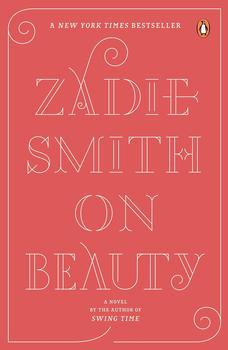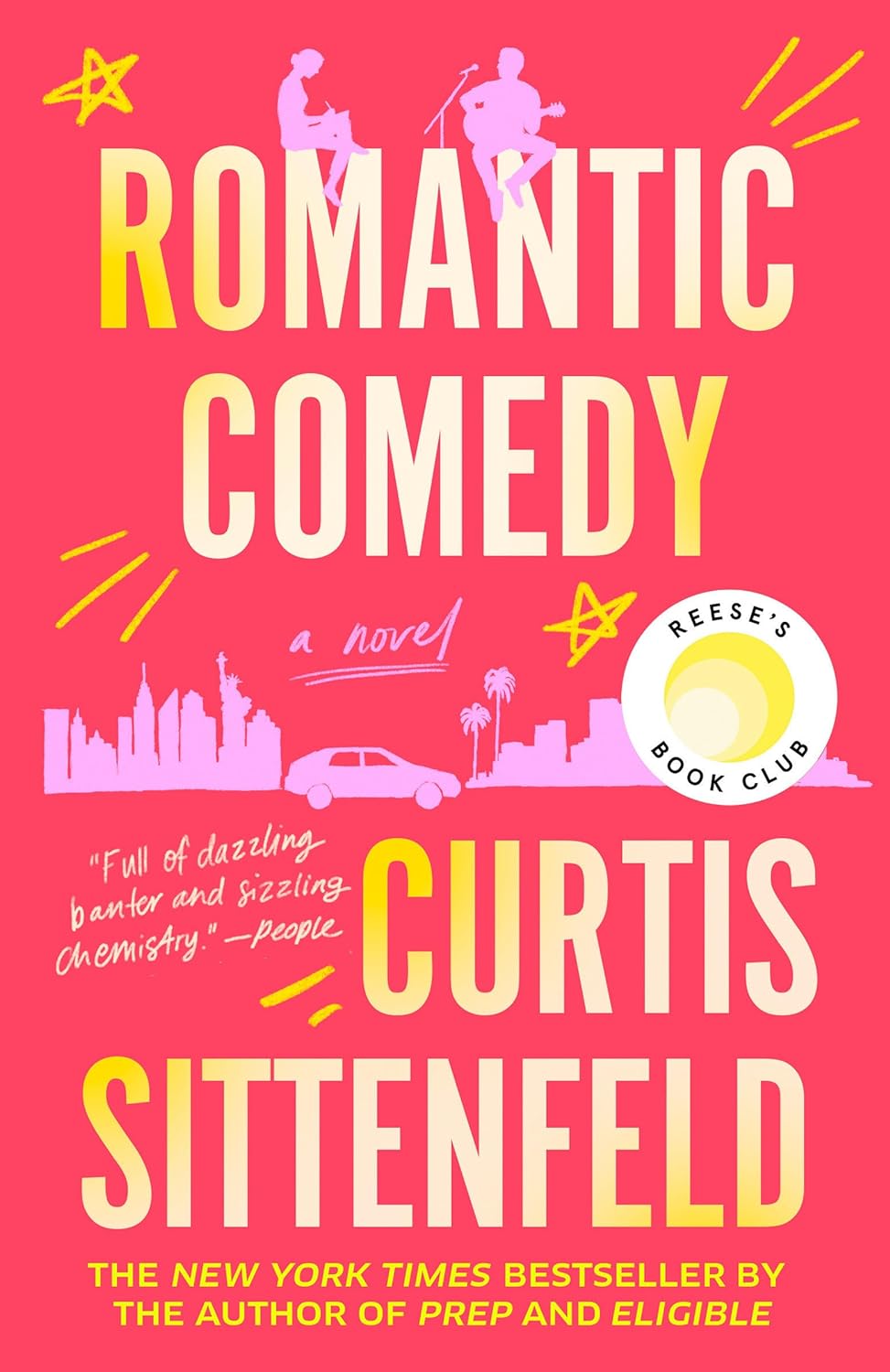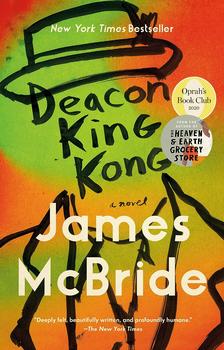Summary | Excerpt | Reading Guide | Reviews | Beyond the book | Read-Alikes | Genres & Themes | Author Bio

From the book jacket: Howard Belsey, a Rembrandt scholar
who doesn't like Rembrandt, is an Englishman abroad and a long-suffering
professor at Wellington, a liberal New England arts college. He has been married
for thirty years to Kiki, an American woman who no longer resembles the sexy
activist she once was. Their three children passionately pursue their own paths:
Levi quests after authentic blackness, Zora believes that intellectuals can
redeem everybody, and Jerome struggles to be a believer in a family of strict
atheists. Faced with the oppressive enthusiasms of his children, Howard feels
that the first two acts of his life are over and he has no clear plans for the
finale. Or the encore.
Then Jerome, Howard's older son, falls for Victoria, the stunning daughter of
the right-wing icon Monty Kipps, and the two families find themselves thrown
together in a beautiful corner of America, enacting a cultural and personal war
against the background of real wars that they barely register. An infidelity, a
death, and a legacy set in motion a chain of events that sees all parties forced
to examine the unarticulated assumptions which underpin their lives. How do you
choose the work on which to spend your life? Why do you love the people you
love? Do you really believe what you claim to? And what is the beautiful thing,
and how far will you go to get it?
Comment: What a wise and wonderful novel On Beauty is. On
opening it I wondered what possible interest I could find in reading a novel of
middle-class angst set in a liberal arts college, but how wrong I was.
Smith deliciously skewers the insularities and hypocrisies of academia while
exploring family, race and morality primarily through the lives of the Belseys,
consisting of African-American Kiki, a well-endowed force of nature;
determinedly liberal Howard, a force of mind, who has spent his entire career
deconstructing art - and thus, inevitably, has lost sight of its inherent
beauty; and their three children all in search of their own identities - Jerome
who, much to the disgust of his father, has found Jesus, and worse still,
conservatism; Levi, the youngest, who is searching for his authentic self and
is convinced he's not going to find it in the middle-class predominantly white suburbs
of Wellington; and Zora, obsessively driven to achieve academic success at
whatever cost. Crammed into this melee are a whole host of other
characters, including Haitian immigrants, hip-hop poets, East-coast
intellectuals, and most predominantly the Kipps family, led by Howard's bitter
rival, the West Indian ultra-conservative, and obnoxiously self-righteous, Monty
Kipps.
The Belsey children's identity struggles could be seen as a result of their
mixed race heritage, but Smith puts pay to that simplistic approach in the
interview at BookBrowse in which she explains that "The Belsey children don't
struggle to find an identity because they're mixed race, they struggle because
they are "of Modernity," and the product of a twentieth century that invented
and patented this piece of claptrap called "finding an identity," and it drives
everybody nuts, mixed race or no. The search for an identity is one of the most
wholesale phony ideas we've ever been sold. In the twenty-first century it's
almost entirely subsumed in its purest form of "brand identity"—for Levi to be
"more black" would simply involve the purchasing of items connected with the
idea of blackness ..... The Belsey children need to stop worrying about their
identity and concern themselves with the people they care about, ideas that
matter to them, beliefs they can stand by, tickets they can run on. Intelligent
humans make those choices with their brain and hearts and they make them alone.
The world does not deliver meaning to you. You have to make it meaningful."
What should we expect from Zadie Smith next? Sadly, it seems we
shouldn't expect another book like On Beauty, indeed it might even be
sometime before she writes another novel at all. When asked why she chose
to base both the plot and theme of On Beauty of E.M. Forster's Howards
End, she replies "Forster represents one of the earliest loves of my
reading life and the first intimations I ever had of the power and beauty of
this funny, artificial little construction, the novel .... But I actually think
the points where On Beauty meets Howards End are the least interesting bits of
the book for me. It was simply a way of writing inside a certain genre: the
literary update .... I suppose I still think of myself as an apprentice,
and this was the end of one part of my apprenticeship—"learning to write an
English novel." I know many people think of me as too slavish to that tradition,
but that's because I grew up feeling so far from every tradition; I
overcompensated. But now I feel "legitimate" in some way; writing this book
helped me feel that. The predictable consequence is that it has freed me up and
now I want to be illegitimate. I'll never write a novel so engaged with
tradition again, so linear, so—nineteenth century. I finally feel free to do my
own thing. This is a long way of saying, working through my Forster habit has
got me to a new place."
When asked specifically what she's working on now she says "I was twenty when I started [White Teeth]—I'm thirty now. The practice of
writing has defined me utterly; I never got a chance to do anything else with my
life ..... there's a lot in On Beauty that is still hamstrung and dutiful to an
idea of the novel that I don't really believe in, intellectually. I think when
you say it's the most accomplished you mean 'It looks and smells just like a
real novel.' But what's the point of that really? This is what I have to figure
out in the next ten years. I think the biggest change in me and my writing is
the realization that in the end my best work might be nonfiction. I'm writing
criticism now and I feel so much more confident and happy about it. It allows me
to express my passion, which is really other people's fiction. I find it hard to
express anything really personal to me in the fiction: I'm too self-conscious.
But maybe that will change."
On Beauty is one not to miss - but as always, you don't have to take my word
for it - instead you can browse a substantial (and I believe exclusive to us at
this time) excerpt at BookBrowse.
![]() This review
first ran in the September 6, 2006
issue of BookBrowse Recommends.
This review
first ran in the September 6, 2006
issue of BookBrowse Recommends.

If you liked On Beauty, try these:

by Curtis Sittenfeld
Published 2024
A comedy writer thinks she's sworn off love, until a dreamy pop star flips the script on all her assumptions—a hilarious, observant, and deeply tender novel from the New York Times bestselling author of Eligible, Rodham, and Prep.

by James McBride
Published 2021
From James McBride, author of the National Book Award-winning The Good Lord Bird, comes a wise and witty novel about what happens to the witnesses of a shooting.
Your guide toexceptional books
BookBrowse seeks out and recommends the best in contemporary fiction and nonfiction—books that not only engage and entertain but also deepen our understanding of ourselves and the world around us.